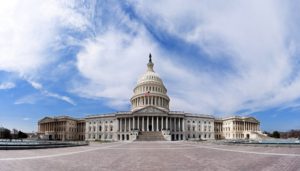In 2001, in a Wall Street Journal article called “Survey Shows U.S. Customs Allows Illegal Foreign Medication,” then Congressman James Greenwood (R-PA) expressed his belief that Americans who import medications, even illegally, for their own use, should be able to. As president and chief executive of the Biotechnology Innovation Organization (BIO), which represents leading biopharmaceutical companies (such as Abbvie, Amgen, Celgene, and Gilead), he has changed his tune.
Flashback to 2001…
Congressman Greenwood, who chaired the House Commerce oversight committee, stuck up for cash strapped older Americans. Congressman Greenwood said:
“While we would like to stop dangerous drugs from being brought in for abuse and stop people from getting drugs that are counterfeit or bogus, we don’t want to interfere … with an older person getting a better buy.”
He was referring to Americans importing small quantities of non-controlled, prescription drugs for their own use because they cost a lot less money than at U.S. pharmacies.
Fast forward to 2017…
A few weeks back, Tim Wu, a law professor at Columbia University, wrote an intriguing Op-Ed in the New York Times recommending that President Trump use his executive authority to expand access to lower cost imported medications immediately, making use of what Professor Wu called the “import relief” law, to help stop price gouging by drug companies. For a deeper dive on this law, see Prescription Justice’s policy paper on using executive authority to permit personal importation.
In response, Mr. Greenwood wrote a Letter to the Editor to criticize Professor Wu’s call to action. Predictably he wrote that expanding imports of lower cost foreign medication will threaten consumers with bad drugs, citing the position of former FDA commissioners against importation. Of course Americans are already buying lower cost, lawfully-manufactured, safe and effective medications from international pharmacies – if they buy from online pharmacies approved by PharmacyChecker.
What was most distressing about Mr. Greenwood’s letter is the flippant and misleading way he addresses savings from importation. He references a report by Health and Human Services (HHS) from 2004 that estimates 1-2% of savings from “legalized commercial importation” and that the savings to individuals would be “less than 1% of total savings.” The point of that comically deceptive use of language is that if consumers save, say only $4 billion a year – that’s only 1% of total pharmaceutical expenditures, which are now over $400 billion in the U.S.
That same HHS report also recognizes: “In many instances, U.S. consumers have been able to purchase from abroad foreign versions of U.S.-approved brand name drugs at lower prices.” And 13 years later, with drug prices now through the roof, they continue to do so to the tune of 70% savings from Canadian pharmacies, and even more from pharmacies in other countries.
Mr. Greenwood, respectfully, I understand that you are representing biopharmaceutical companies, but shouldn’t Americans still be able to get “a better buy” on lower cost imported medication, especially when tens of millions can’t afford the medication here?
Tagged with: bio, biotechnology innovation organization, james greenwood


